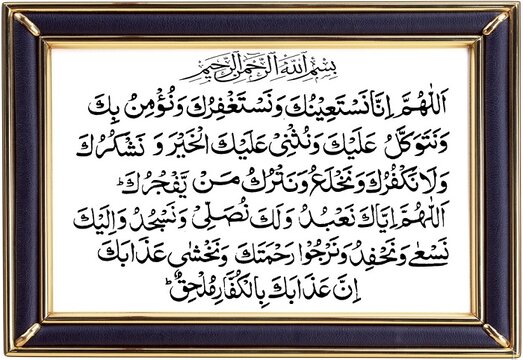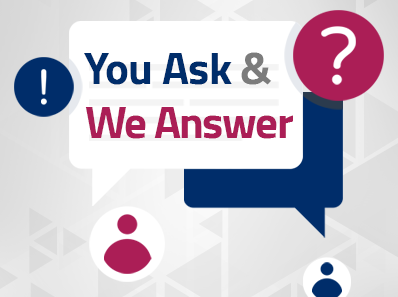Dua-e-Qunot is a supplication that is recited in the last third of the night prayer in Islam. The word “Qunoot” literally means “desire” or “invocation” and comes from the Arabic word “Qanata” which means “to stand”. The act of standing in the context of Dua e Qunoot refers to the physical posture of the mourner during prayer, because he stands in a state of humility and submission before God.
The content of Dua e Qunoot varies depending on the tradition and school of thought in Islam. However, the main theme and meaning of the prayer are consistent in different interpretations. In general, Dua-e-Qunoot is a prayer to seek guidance, protection, and mercy of God and is often recited in times of trouble, hardship, and difficulty.
Importance of Dua Qunoot :
Dua e Qunoot is an important part of Islamic tradition and is considered a strong form of devotion to Allah. Recitation of Dua e Qunoot is considered a way for Muslims to communicate with their Creator and seek His guidance and protection in their daily lives.
One of the main reasons for the importance of Dua e Qunot is its association with Prophet Muhammad (S.A.W). According to the hadith, Prophet Muhammad (S.A.W) himself recited Dua e Qunot in the night prayer and encouraged his companions to do the same. This prayer has a special meaning in the Islamic tradition and has become a widespread form of devotion among Muslims.
Many blessings in wealth by reading DuaQunoot, those who read Qunoot 3 times after the Asar Prayer will be purified in Rizk(wealth).
If a person does not interested in Salah with the heart, he should recite Dua Qunot so that he focuses on Salat.
Allah will turn his heart to the prayer of those who pray once after the obligatory prayer.
Whoever reads once a day, Allah SWT protects him from Satan(Devil).
Allah SWT is the heart of those who read Dua Qunoot to fulfill all lawful desires. But for that one must perform Salat (prayer) regularly.
Dua Qunoot Translation in English :
You will find the Qunoot prayer translation helpful in the memorization and reading process. Below is Dua Qunoot in English and its translation in English too.
“Allahumma Innaa Nastaeenuka Wanastagfiruka Wanu’minubika Wanatawakkalu Alaika Wanusni Alaikal Khair; Wanashkuruka Walaa Nakfuruka Wanakhla-oo Wanatrukuu Maenyafjuruk; Allahumma Iyyaka Na’budu Walaka Nusallee Wanasjudu Waelaeka Nas’aa; Wanahfidu Wanarju Rahmataka Wanakhsha Azaabaka, Inna Azaabaka Bilkuffaari Mulhiq.”
The content of Dua e Qunoot varies depending on the tradition and school of thought in Islam. However, the main theme and meaning of the prayer are consistent in different interpretations. In general, Dua-e-Qunoot is a prayer to seek guidance, protection, and mercy of God and is often recited in times of trouble, hardship, and difficulty.
Importance of Dua Qunoot :
Dua e Qunoot is an important part of Islamic tradition and is considered a strong form of devotion to Allah. Recitation of Dua e Qunoot is considered a way for Muslims to communicate with their Creator and seek His guidance and protection in their daily lives.
One of the main reasons for the importance of Dua e Qunot is its association with Prophet Muhammad (S.A.W). According to the hadith, Prophet Muhammad (S.A.W) himself recited Dua e Qunot in the night prayer and encouraged his companions to do the same. This prayer has a special meaning in the Islamic tradition and has become a widespread form of devotion among Muslims.
Many blessings in wealth by reading DuaQunoot, those who read Qunoot 3 times after the Asar Prayer will be purified in Rizk(wealth).
If a person does not interested in Salah with the heart, he should recite Dua Qunot so that he focuses on Salat.
Allah will turn his heart to the prayer of those who pray once after the obligatory prayer.
Whoever reads once a day, Allah SWT protects him from Satan(Devil).
Allah SWT is the heart of those who read Dua Qunoot to fulfill all lawful desires. But for that one must perform Salat (prayer) regularly.
Dua Qunoot Translation in English :
You will find the Qunoot prayer translation helpful in the memorization and reading process. Below is Dua Qunoot in English and its translation in English too.
“Allahumma Innaa Nastaeenuka Wanastagfiruka Wanu’minubika Wanatawakkalu Alaika Wanusni Alaikal Khair; Wanashkuruka Walaa Nakfuruka Wanakhla-oo Wanatrukuu Maenyafjuruk; Allahumma Iyyaka Na’budu Walaka Nusallee Wanasjudu Waelaeka Nas’aa; Wanahfidu Wanarju Rahmataka Wanakhsha Azaabaka, Inna Azaabaka Bilkuffaari Mulhiq.”
Prilozi
-
155.6 KB Pregleda: 16




